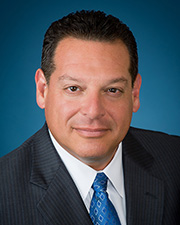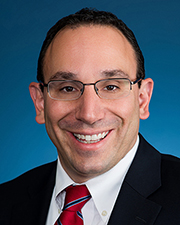
Kaufman Dolowich & Voluck


As an owner of a construction project, it is imperative that you ensure that your contractors, and their subcontractors, procure general liability insurance which protects you from claims arising out the work being performed on your property. Such coverage is imperative because under New York’s Labor Law, owners of projects are strictly liable for many types of incidents that result in workers being injured at their projects, and are liable if the work of their contractors causes damage to neighboring properties. Most owners believe that the most effective way for an owner to ensure protection is to ensure: (i) that the owner’s agreement with the general contractor requires the general contractor to defend, indemnify and hold you harmless against claims “arising out of” (not “caused by”) its work; (ii) that the agreement requires the general contractor to procure general liability insurance naming the owner as an additional insured on a primary, non-contributory basis; (iii) that the agreements between the general contractor and its subcontractors contain the same indemnification and insurance procurement provisions as the owner’s agreement with the general contractor and include the owner as an indemnitee and additional insured; and (iv) that the owner insists that the general contractor and its subcontractors provide copies of the declarations pages of their respective insurance policies (rather than a certificate of insurance) before they commence work at the project.
Unfortunately, while taking the above steps prior to the commencement of the work undoubtedly will eliminate many of the pitfalls to proper insurance coverage that an owner of a construction project can face, these steps alone may not be enough to adequately protect an owner throughout the course of the project. Indeed, numerous issues can arise during the course of a project that can jeopardize an owner’s entitlement to additional insured coverage. This could be problematic because while losing additional insured coverage alone would be harmful to an owner, many owners’ general liability policies contain provisions which require them to ensure that their contractors’ policies provide for additional insured coverage or else face a significantly higher deductible or, in extreme cases, the complete loss of coverage under their own policies.
For example, the contractor’s insurance policy could be cancelled during the policy period on account of the contractor’s failure to pay policy premiums. In many cases, an owner is not entitled to advanced notice of a cancellation for non-payment of premiums and will not learn of the cancellation until after it has occurred, and likely not until after an incident for which coverage is needed has occurred. Another cause for concern that has become more frequent is that owners are discovering the limits of their contractors’ policies have been significantly impaired or even fully exhausted leaving little or no coverage for the contractor or the additional insureds. Every insurance policy contains two sets of limits – the amount the policy will pay towards any single occurrence and the total amount that will be paid to resolve claims covered by the policy (the “aggregate.”) Once the aggregate is exhausted, the insurance company no longer has any obligation to provide a defense or indemnity to any insured, including with respect to claims for which a defense is being provided at the time of exhaustion.
Fortunately, there are steps that owners can and should take both before and during its project to ensure that sufficient insurance coverage remains in place.
First, owners should ensure that its insurance policy will provide coverage regardless of whether their contractors fail to provide additional insured coverage. While these policies are costlier, they are significantly less expensive than having to pay for an uninsured loss, which could cost millions of dollars in legal fees and awards.
Owners also should ask their contractors for proof of payment of insurance premiums prior to the commencement of work. This will eliminate the possibility that a policy is cancelled for non-payment of premiums during a project. If the policy premium has not been paid in full, the owner could offer to make the payment directly and back charge the contractor’s account. If the contractor refuses, the owner can terminate the agreement for convenience and retain a more responsible contractor.
Finally, owners can and should insist that their contractors procure insurance coverage with limits that provide sufficient coverage both for the project for which the contractor is being hired and for all projects that the contractor may perform during the policy periods in which the project is being performed. Owners would be wise to check with their insurance brokers and get the broker’s opinion on what would be sufficient limits of coverage for the contractors. Prior to the commencement of work, and at regular intervals during the project, owners should request updates on impairments to the contractor’s coverage. Owners are also well with their rights to insist that contractors replenish coverage during the project to ensure that the coverage available meets the insurance coverage requirements set forth in the agreement.
Andrew Richards is a co-managing partner – Long Island office, chairman of construction practice group, and Matthew Minero is a partner at Kaufman Dolowich & Voluck, LLP, Woodbury, N.Y.


When Environmental Site Assessments (ESA) were first part of commercial real estate risk management, it was the lenders driving this requirement. When a borrower wanted a loan on a property, banks would utilize a list of “Approved Consultants” to order the report on both refinances and purchases.